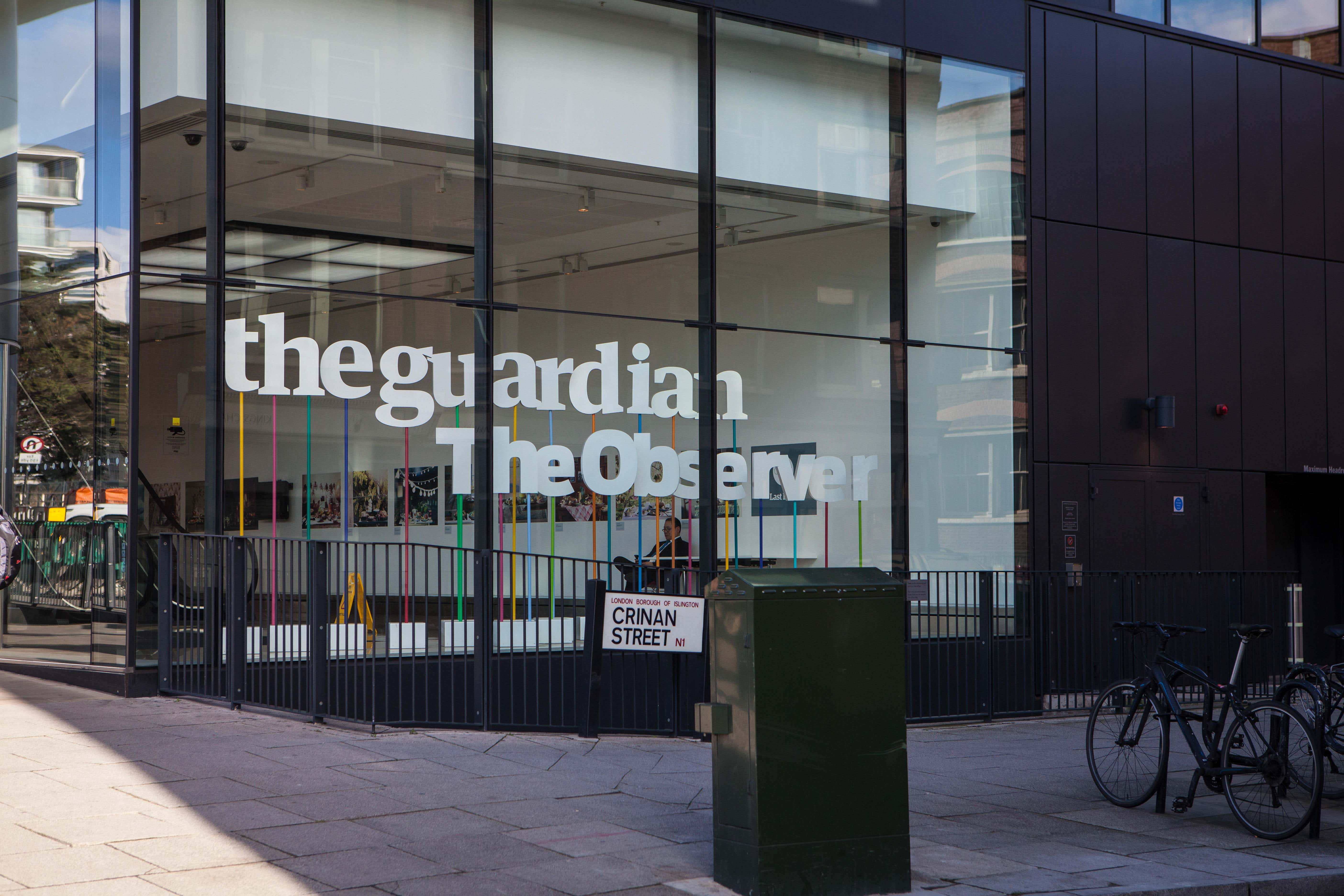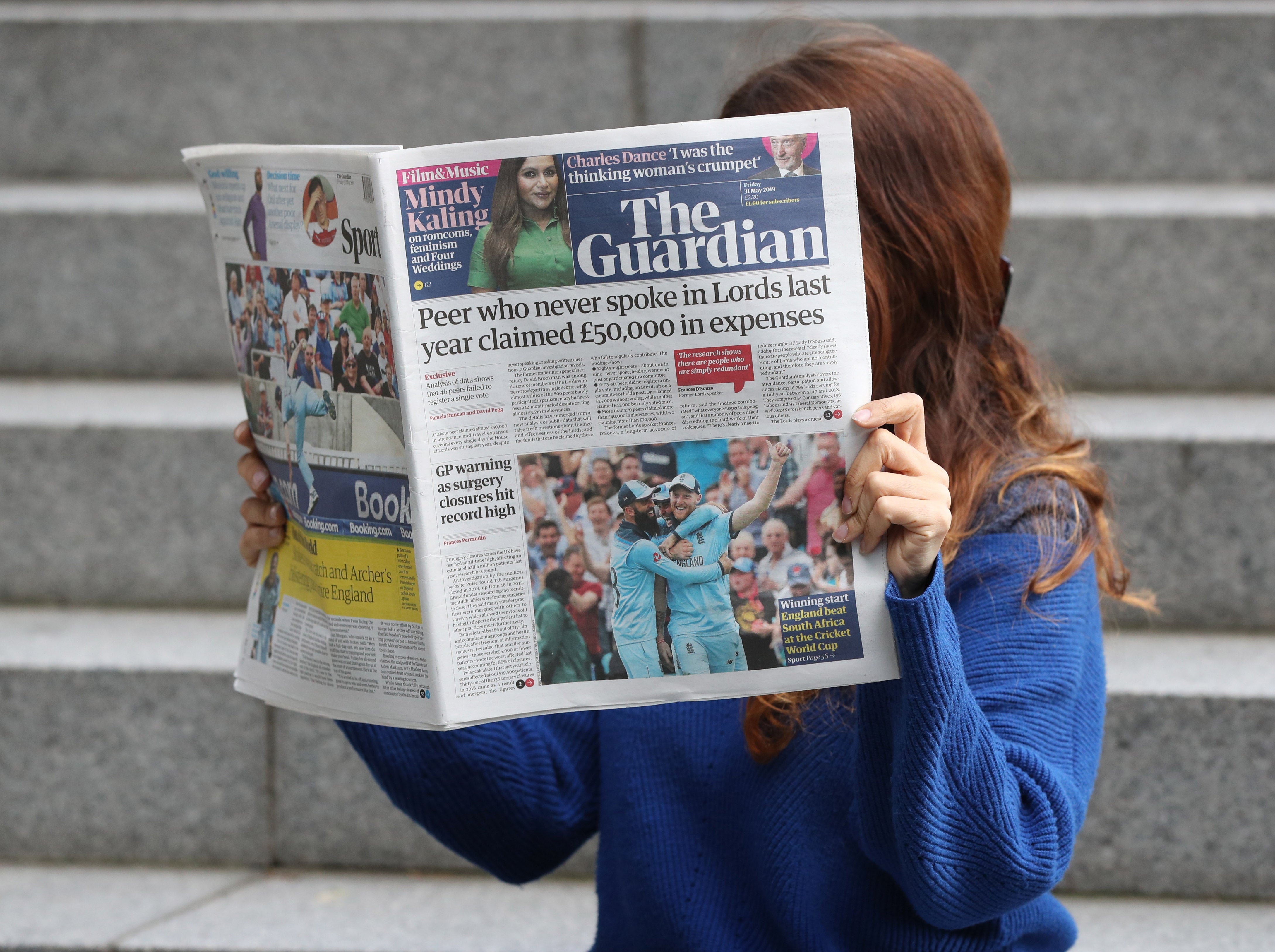Guardian Media Group in talks to sell Observer newspaper to Tortoise Media
The media giant is in exclusive discussions to sell the world’s oldest Sunday newspaper

Your support helps us to tell the story
From reproductive rights to climate change to Big Tech, The Independent is on the ground when the story is developing. Whether it's investigating the financials of Elon Musk's pro-Trump PAC or producing our latest documentary, 'The A Word', which shines a light on the American women fighting for reproductive rights, we know how important it is to parse out the facts from the messaging.
At such a critical moment in US history, we need reporters on the ground. Your donation allows us to keep sending journalists to speak to both sides of the story.
The Independent is trusted by Americans across the entire political spectrum. And unlike many other quality news outlets, we choose not to lock Americans out of our reporting and analysis with paywalls. We believe quality journalism should be available to everyone, paid for by those who can afford it.
Your support makes all the difference.The Guardian Media Group is in talks to sell The Observer newspaper to Tortoise Media, a news business launched in 2019 by a former BBC executive.
The media giant is in exclusive discussions to sell the world’s oldest Sunday newspaper.
Tortoise approached the Guardian newspaper group with an offer to buy the publication and invest more than £25m over the next five years in the editorial and commercial side of the business.
It also plans on building the digital Observer and combining it with Tortoise’s podcasts, newsletters and live events, while continuing to publish the Sunday newspaper.
We think The Observer is one of the greatest names in news
The companies did not disclose the price or the terms of the potential deal.
The Observer was founded in 1791 and bought by Guardian Media Group (GMG) in 1993, where it is run as a separate paper to The Guardian.
Tortoise was co-founded by James Harding, a former director of news and current affairs at BBC News and editor of The Times.
The company, which specialises in what it describes as “slow news”, has produced investigations including the popular podcast series Sweet Bobby, which is set to be made into a Netflix documentary.
Mr Harding said: “We think The Observer is one of the greatest names in news.
“We believe passionately in its future – both in print and digital.
“We will honour the values and standards set under The Guardian’s great stewardship and uphold The Observer’s uncompromising commitment to editorial independence, evidence-based reporting and journalistic integrity.”
It is extremely important to me that The Observer... is in good hands
Anna Bateson, the chief executive of GMG, said it was an “exciting strategic opportunity” for the business” with “significant investment” into its future.
Katharine Viner, editor-in-chief of The Guardian, said a deal with Tortoise “has the potential to be a very positive thing”.
“My number one priority is a future in which both titles continue to thrive and deliver high-quality journalism to our readers,” she said.
“It is extremely important to me that The Observer, with its excellent journalistic reputation, loyal readership and heritage as the world’s oldest Sunday newspaper, is in good hands.”
Meanwhile, GMG said it generated more revenues from digital readers over the past year, as it published the group’s latest financial results.
Digital reader revenue grew by 8 per cent to £88.2m in the year to the end of March, compared with the prior year, with more than a million recurring digital supporters.

The Guardian offers a digital subscription for £12-a-month with unlimited access to its app, no adverts and a weekly newsletter.
It also uses pop-up banners to ask readers for money to support the publication’s independent journalism.
Overall revenues, which include advertising and newspaper sales, were down 2.5 per cent to £257.8m, which it said reflected a wider advertising slowdown and pressures on printed newspapers.
It also reported an adjusted operating loss of £33.9m, greater than the £18m loss reported the prior year.
“An 8 per cent growth in digital reader revenues is a significant achievement and proof that our strategy is working, against tough market conditions faced by the whole media industry,” said Ms Bateson.